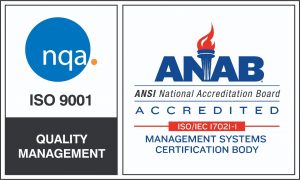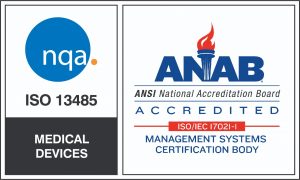 A contract manufacturer (CM) helps companies produce new products without the need to acquire additional equipment, technologies, or people. CMs are industry experts with years of experience. Depending on the firm, a CM can help with design, production, and testing of a wide range of products.
A contract manufacturer (CM) helps companies produce new products without the need to acquire additional equipment, technologies, or people. CMs are industry experts with years of experience. Depending on the firm, a CM can help with design, production, and testing of a wide range of products.
Partnering with the right contract manufacturer can be extremely rewarding. Contract manufacturers support innovation and make it possible to grow your business and expand into new markets.
The following will help ensure a successful relationship with your contract manufacturer.
Select a Qualified CM Early in the Process
Enlisting the help of a contract manufacturer early in the process allows you to work together to meet target costs and create realistic timelines. A contract manufacturer can help provide insight that can be used to improve the quality of products produced while reducing the cost of production and time to market.
Define the Scope of Work
Understanding what is expected is crucial to the successful completion of any project. Although companies are often anxious and run headfirst into production, it’s a much better idea to take a step back and make sure that everyone fully understands the true scope of work.
Addressing factors such as timeline, milestones, and responsibilities early in the process ensures that everyone is on the same page.
Identify Testing and Inspection Requirements
Testing and inspection requirements will vary by project. Identifying these requirements early helps control budget and timeline requirements.
Communicate Device Function to the CM
It’s important to describe in detail the functional requirements of the product being produced. This will help identify high-risk areas and ensure compliance with industry standards. For example, medical devices must meet strict regulations. Without a clear understanding of what the finished product will be used for, a CM might not take the necessary steps to ensure compliance. Always be very clear when discussing device function.
Be Realistic About Cost
One of the biggest hurdles of any project is determining the cost of production. While the actual cost will vary from the estimated total, careful planning can provide a more realistic view. It’s important to take into consideration the possibility of market changes that could affect time and cost.
 Defense industries around the world are starting to show more interest in emerging technologies. In fact, defense communities have already begun reaching out to capable providers. Particular areas of interest include artificial intelligence (AI), big data analytics, additive manufacturing, advanced and smart materials, augmented reality, unmanned systems, and remote sensing. Modern day militaries are hoping to use these technologies to enhance the effectiveness of military people, machines, and systems in the future.
Defense industries around the world are starting to show more interest in emerging technologies. In fact, defense communities have already begun reaching out to capable providers. Particular areas of interest include artificial intelligence (AI), big data analytics, additive manufacturing, advanced and smart materials, augmented reality, unmanned systems, and remote sensing. Modern day militaries are hoping to use these technologies to enhance the effectiveness of military people, machines, and systems in the future. Companies today face many challenges when it comes to research & development (R&D). This is especially true for companies responsible for the creation of electronic devices. New electronic products must meet strict requirements and the rising demands of modern day consumers.
Companies today face many challenges when it comes to research & development (R&D). This is especially true for companies responsible for the creation of electronic devices. New electronic products must meet strict requirements and the rising demands of modern day consumers. In the past, contract manufacturing was thought of as a way to save money. While this is still true, a quality contract manufacturer is now able to offer so much more. Contract manufacturers today are relied on by many industries to support growth by bringing innovation, new technology, and a new approach.
In the past, contract manufacturing was thought of as a way to save money. While this is still true, a quality contract manufacturer is now able to offer so much more. Contract manufacturers today are relied on by many industries to support growth by bringing innovation, new technology, and a new approach. Reverse engineering involves taking apart an object to see how it works. This is typically done to recreate or improve a product. Reverse engineering can also be used to help determine patent infringement or when service documentation has been lost or is no longer available.
Reverse engineering involves taking apart an object to see how it works. This is typically done to recreate or improve a product. Reverse engineering can also be used to help determine patent infringement or when service documentation has been lost or is no longer available.

